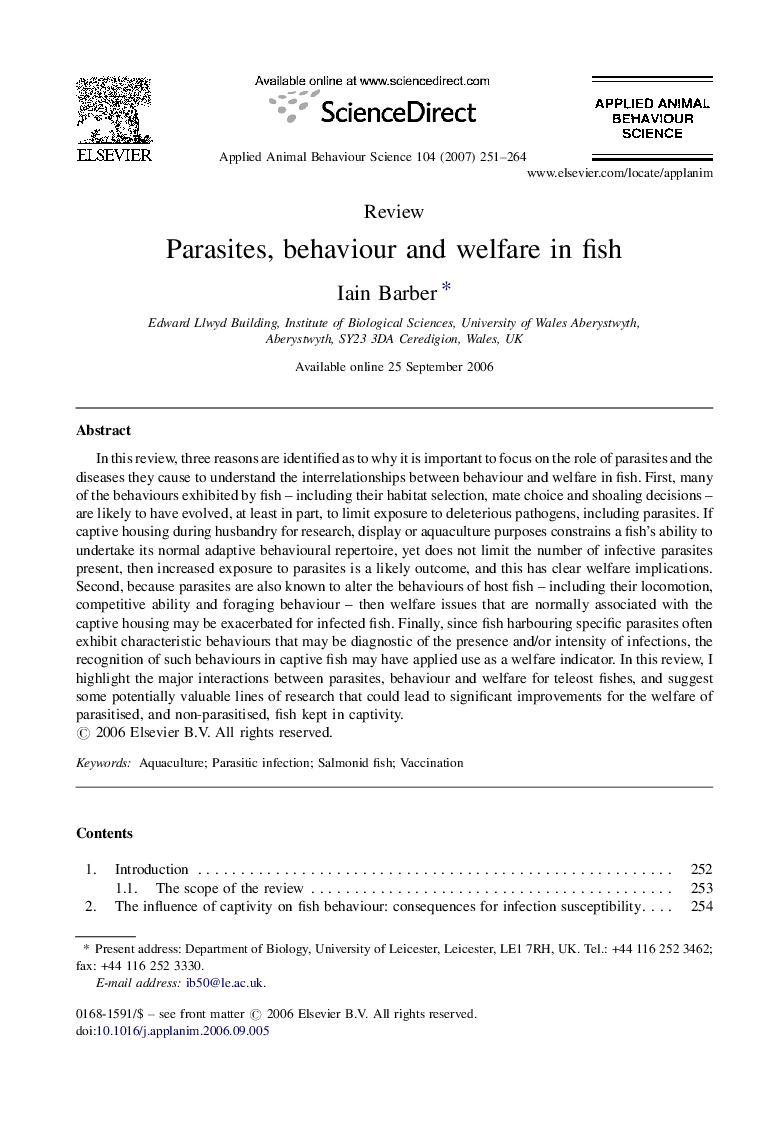| کد مقاله | کد نشریه | سال انتشار | مقاله انگلیسی | نسخه تمام متن |
|---|---|---|---|---|
| 4523957 | 1625433 | 2007 | 14 صفحه PDF | دانلود رایگان |

In this review, three reasons are identified as to why it is important to focus on the role of parasites and the diseases they cause to understand the interrelationships between behaviour and welfare in fish. First, many of the behaviours exhibited by fish – including their habitat selection, mate choice and shoaling decisions – are likely to have evolved, at least in part, to limit exposure to deleterious pathogens, including parasites. If captive housing during husbandry for research, display or aquaculture purposes constrains a fish's ability to undertake its normal adaptive behavioural repertoire, yet does not limit the number of infective parasites present, then increased exposure to parasites is a likely outcome, and this has clear welfare implications. Second, because parasites are also known to alter the behaviours of host fish – including their locomotion, competitive ability and foraging behaviour – then welfare issues that are normally associated with the captive housing may be exacerbated for infected fish. Finally, since fish harbouring specific parasites often exhibit characteristic behaviours that may be diagnostic of the presence and/or intensity of infections, the recognition of such behaviours in captive fish may have applied use as a welfare indicator. In this review, I highlight the major interactions between parasites, behaviour and welfare for teleost fishes, and suggest some potentially valuable lines of research that could lead to significant improvements for the welfare of parasitised, and non-parasitised, fish kept in captivity.
Journal: Applied Animal Behaviour Science - Volume 104, Issues 3–4, May 2007, Pages 251–264